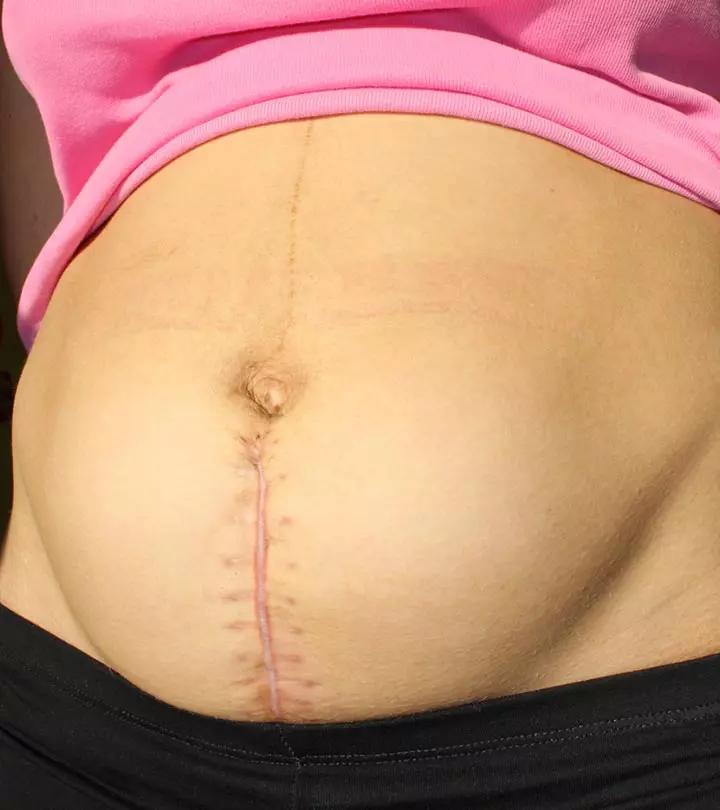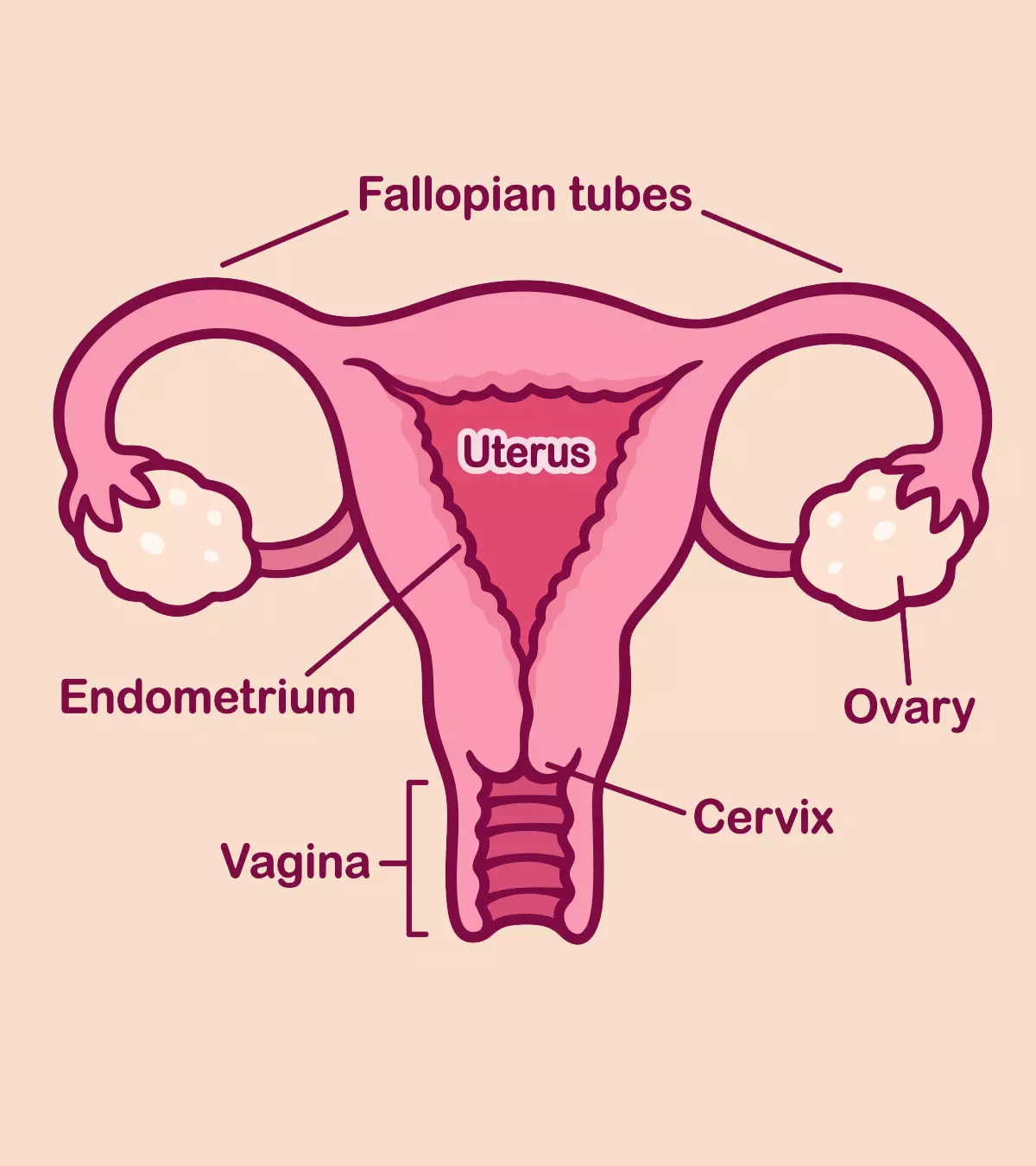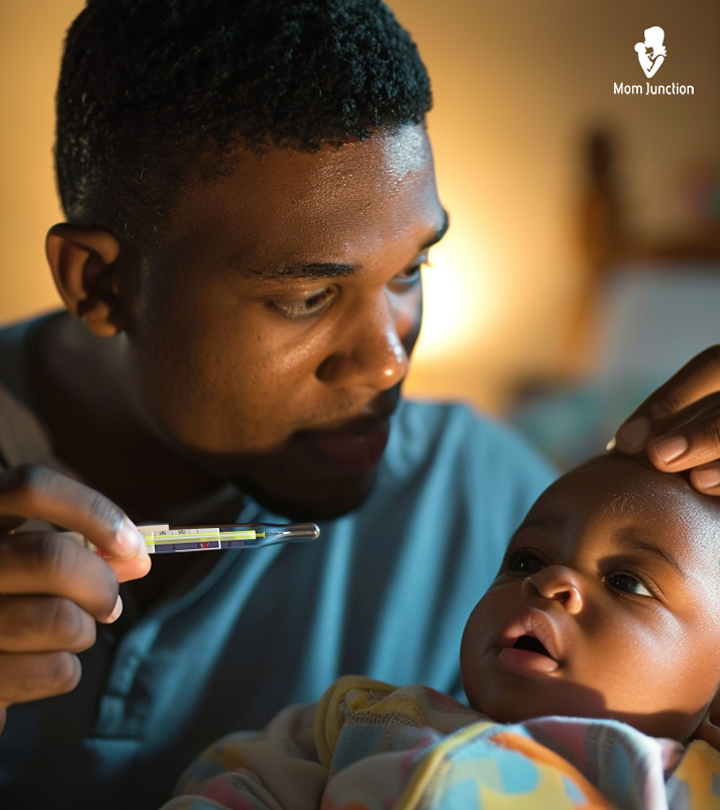
Image: ShutterStock
Lactation occurs naturally in women after childbirth. However, lactation without pregnancy is characterized by milk discharge from breasts even if one is not pregnant or nursing. It is not uncommon for mothers to experience breast milk production and leakage even one year after weaning the baby.
However, in some cases, lactation without pregnancy may be a side effect of certain medications or a symptom of a pituitary gland disorder. Read this post to learn about the symptoms, diagnosis, treatment, and prevention of lactation during pregnancy.
Key Pointers
- Lactation without pregnancy or galactorrhea could be due to physiological factors or underlying pathological conditions.
- A doctor may conduct a physical examination of the breast, check the other accompanying symptoms, or request lab tests of the nipple discharge to diagnose galactorrhea.
- The treatment of galactorrhea depends on the cause.
What Is Lactation Without Pregnancy?

Image: Shutterstock
Some women may have a milky discharge from the breast even in the absence of pregnancy. Such a condition is called galactorrhea, which is experienced by around 20-25% of women at some point in their life (1).
It is common in women aged between 20 and 35 years. The milk secretion can be persistent or intermittent, abundant or scant, unilateral or bilateral.
So what could cause lactation when you are not pregnant or have recently delivered a child? Find out next.
Why Do You Lactate When You Are Not Pregnant?
Several causes can cause lactation suppression or inappropriate milk discharge. We have categorized them into physiological and pathological reasons (2):
Physiological
- In the case of amenorrhea (absence of a monthly period), galactorrhea is usually caused by hyperprolactinemia, a condition when the level of prolactin hormone in the blood increases and stimulates breast milk production. The amount of lactation hormones remains high post-delivery, which is normal (2).
- Nipple or breast manipulation during sex.
- Psychosocial stress (3)
Pathologic
- Endocrine disorders involving the hypothalamus or pituitary stalk. Suprasellar or sellar lesions of the pituitary stalk, which is also called ‘stalk effect,’ can lead to galactorrhea.
- Tumors that include craniopharyngiomaiA rare, benign brain tumor that originates in the pituitary gland. , germinomaiA specific kind of tumor that starts in sperm or egg-producing cells. , meningiomaiA tumor that develops from the membranes that cover the brain and spinal cord.
- Infiltrative disorders like histiocytosisiAn abnormal rise in the quantity of certain white blood cells known as histiocytes. , sarcoidosisiA rare condition responsible for the development of small clumps of inflammatory cells in the body.
- Rathke’s cleft cystsiNon-cancerous, fluid-filled cysts that grow between the base of the brain and the pituitary gland.
- Pituitary lesions like prolactinomaiA noncancerous growth of the pituitary gland. (that causes hyperprolactinemia), acromegaly
- Chest wall lesions
- Breast surgery
- Burns
- Spinal cord injury
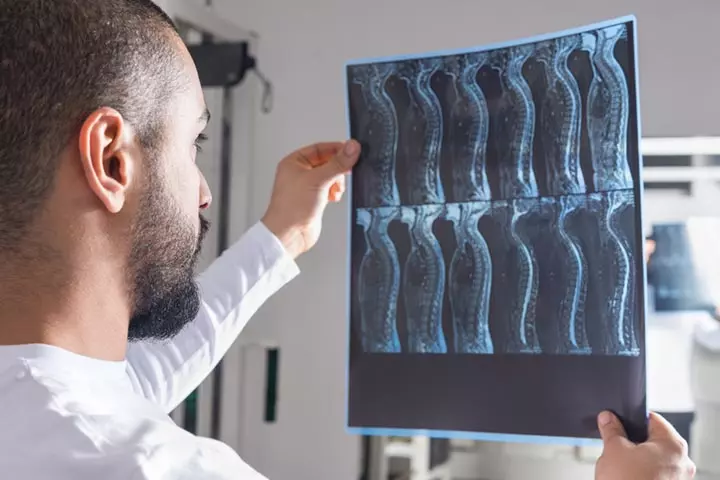
Image: Shutterstock
- Herpes zoster
- Trauma
- Systemic disease like hypothyroidism, renal insufficiency
- Medication-induced hyperprolactinemia that includes antipsychotics, gastrointestinal motility medications (metoclopramide), antidepressants, antihypertensive medications (verapamil, methyldopa, reserpine), opioids, cocaine
- Idiopathic hyperprolactinemiaiIncreased blood prolactin levels in the circulating blood with no or unknown underlying causes.
- Normoprolactinemic galactorrheaiThe condition when galactorrhea coexists with normal prolactin levels.
- ThyrotoxicosisiA clinical condition that occurs when the body's levels of thyroid hormones are abnormally high for any reason.
 Quick fact
Quick factFew of the causes mentioned above are associated with certain symptoms, which you may watch out for.
Symptoms Of Lactation Without Pregnancy
Breast milk discharge in itself is a symptom of some other condition. Therefore, look for other symptoms to know the reason behind the inappropriate lactation (3):
In the case of pituitary or hypothalamic disease:
- Headaches
- Visual disturbances
- Temperature intolerance
- Seizures
- Disordered appetite
- PolyuriaiUrine output that is greater than 3 liters each day.
- PolydipsiaiChronic or temporary consumption of excessive water.
In the case of hyperprolactinemia:
- Decreased libido
- Infertility
- Oligomenorrhea
- Amenorrhea
In the case of hypothyroidism:
- Tiredness
- Cold intolerance
- Constipation
In the case of thyrotoxicosis:
- Nervousness
- Restlessness
- Increased sweating
- Heat intolerance,
- Weight loss despite increased appetite

Image: IStock
If any of the symptoms mentioned above or a discharge other than the milky secretion from the nipples bother you, then make sure to see a doctor or lactation consultant without delay. Early diagnosis and treatment can prevent the condition from worsening.
 Quick fact
Quick factDiagnosis Of Lactation Without Pregnancy
The diagnosis for lactation without pregnancy includes a physical examination and a laboratory evaluation by a doctor or lactation specialist (3). A lactation consultant will be able to identify abnormalities related to milk production and provide specialized care.
Physical examination:
- General test: The doctor determines your height, weight, and vital signs and examines the chest for any infection, irritation, or trauma. The doctor will also check for poor growth, gigantism/acromegaly, bradycardia, and tachycardia.
- Examination of the breast: The breast is examined for discharge and nodules. In the case of discharge, milk letdown, or milk ejection, it is essential to ascertain the nodules’ location and to determine if the secretion is through one or more milk ducts.
- Look for other signs: The doctor checks for other signs like visual field defect, cranial neuropathyiA condition that affects the nerves in the brain or brainstem. , papilledemaiSwelling of the optic disc due to high intracranial pressure. , goiter, dry skin, coarse hair, myxedema, and carotenemia.
Laboratory evaluation:
After the physical examination, the doctor may suggest a lab examination if there is still doubt regarding the nature of the discharge from the nipple. A microscopic examination of fat globules in the discharge may be conducted. If pregnancy is suspected, a doctor may order an hCG blood pregnancy test.
If necessary, the doctor may recommend further tests to ascertain the serum prolactin level. If the serum prolactin level is more than 200mg per ml (200 mcg/l), it indicates prolactinoma, which can cause galactorrhea.
In the case of elevated serum prolactin levels, and a suspected pituitary tumor, the doctor may suggest an MRI scan. Also, bone densitometry will be carried out if the patient is suspected of having osteopenia or osteoporosis.
The next section tells you about the different treatment options for lactation without pregnancy. Keep reading.
How Is Lactation Without Pregnancy Treated?
The treatment for galactorrhea depends on the serum prolactin level. If the symptoms of hyperprolactinemia become bothersome, then the following medicines are given to the patient (3):
- Dopamine agonists – It helps in suppressing the serum prolactin level, restoring the gonadal function, eliminating galactorrhea, and decreasing the size of the tumor. Bromocriptine (Parlodel) and cabergoline (Dostinex) are the FDA-approved drugs used for this treatment.
- Surgical interventions – It is rarely the choice of treatment and is considered only if the medicines fail. Doctors would consider transsphenoidal surgery, which is a preferred, conventional method. Stereotactic radiosurgery is another popular method used for treating the condition.
- Radiotherapy – It is considered in patients with macroadenomasi who could not be treated using medicines or surgery.
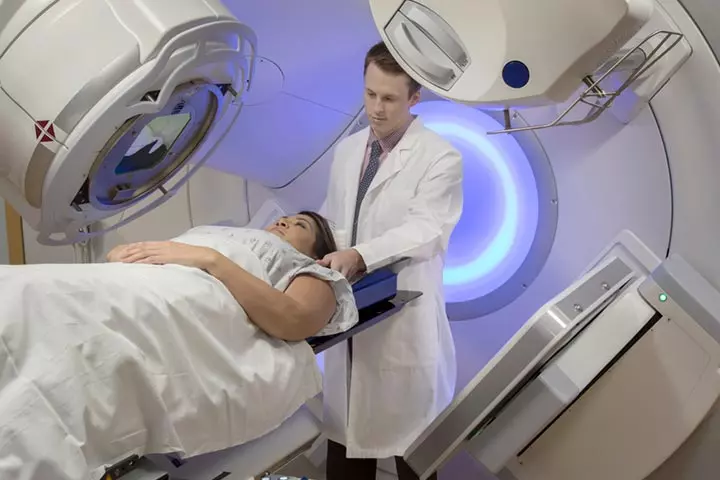
Image: Shutterstock
If the patient has normal prolactin levels and the galactorrhea symptoms are not bothersome, then no treatment is suggested. But, the prolactin level will be periodically measured in such cases.
The section below mentions the preventive steps to avoid any occurrence of lactation without pregnancy and breastfeeding.
Prevention Of Lactation If You Are Not Pregnant
Here are some steps you can follow to prevent galactorrhea (4):
- Avoid wearing bras that irritate the nipple.
- Avoid too much breast stimulation during sex.
- Engage in physical activities, try yoga, or practice meditation to manage and reduce stress.
- Check for any lumps while doing a self-breast examination.
 Point to consider
Point to considerFrequently Asked Questions
1. How long does it take to induce lactation without pregnancy?
Lactation induction in non-pregnant women usually takes about four weeks when stimulated by medical and non-medical interventions (6). Some women may be able to produce sooner, based on individual factors.
2. What techniques can be used to induce lactation without pregnancy?
Various methods that help induce lactation without pregnancy (induced lactation) include breast pump, hand breast milk expression, stimulated suckling, herbal medications, and hormone-mimicking drugs (7). However, any technique must be considered only after a doctor’s consultation.
3. How common is lactation without a pregnancy, and who is most likely to experience it?
Estimates suggest at least 20% to 25% of women are diagnosed with it. Moreover, it may be seen more often in postmenopausal women and men (8).
Lactation without pregnancy or galactorrhea could be a sign of an underlying physiological or medical problem or a side effect of certain drugs. While some occurrences of galactorrhea may pose complications that necessitate immediate medical attention, not all galactorrhea symptoms are severe. Self-evaluation of symptoms associated with breast discharge may provide insight into the underlying reason, but it is best to confer with your doctor for a prompt diagnosis and treatment. Avoiding tight bras, excessive breast stimulation during sex, practicing yoga, and checking for lumps are possible ways to avoid the condition.
Infographic: Can Galactorrhea Occur In Men?
The condition of galactorrhea can occur in men, and this infographic will help you understand why. So check it out to stay informed and help your male friends understand this rare occurrence. Illustration: Momjunction Design Team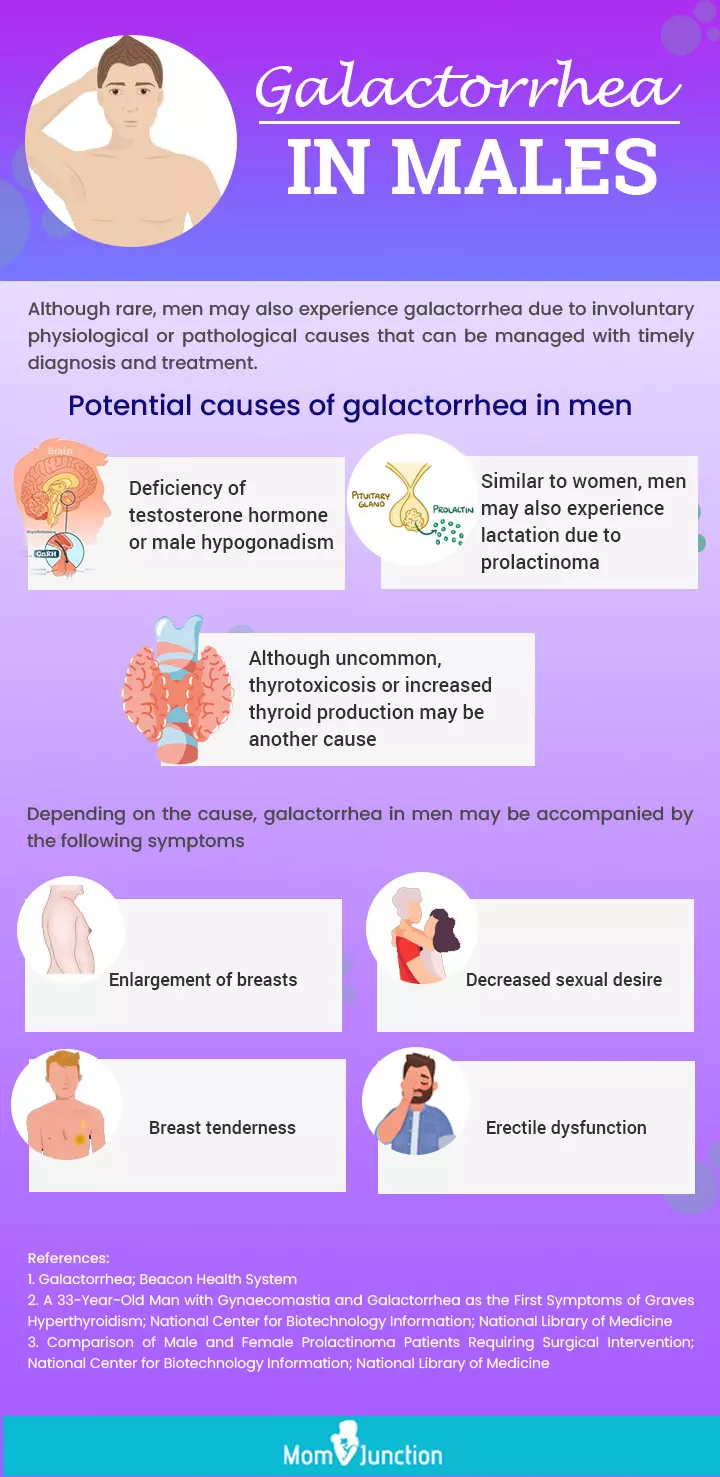
Illustration: Lactating But Not Pregnant: Causes And Ways To Treat It

Image: Stable Diffusion/MomJunction Design Team
References
- Oana Maria Patrascu et al.; Galactorrhoea: Report of Two Cases; NCBI (2015)
https://www.ncbi.nlm.nih.gov/pmc/articles/PMC5327809/ - Wenyu Huang Mark E. Molitch; Evaluation and Management of Galactorrhea; American Family Physicians
https://www.aafp.org/pubs/afp/issues/2012/0601/p1073.html#:~:text=Galactorrhea%20is%20commonly%20caused%20byother%20sellar%20or%20suprasellar%20lesions - Alexander K.C. Leung Daniele Pacaud; Diagnosis and Management of Galactorrhea; American Academy of Family Physicians (2019)
https://www.aafp.org/pubs/afp/issues/2004/0801/p543.html - Galactorrhea; Cleveland Clinic
https://my.clevelandclinic.org/health/diseases/17924-galactorrhea - Galactorrhea
https://familydoctor.org/condition/galactorrhea/ - Induced Lactation: Breastfeeding for Adoptive Parents; American Academy of Pediatrics
https://www.healthychildren.org/English/family-life/family-dynamics/adoption-and-foster-care/Pages/Inducing-Lactation-Breastfeeding-for-Adoptive-Moms.aspx - Lactation; Cleveland Clinic
https://my.clevelandclinic.org/health/body/22201-lactation
Community Experiences
Join the conversation and become a part of our nurturing community! Share your stories, experiences, and insights to connect with fellow parents.
Read full bio of Melissa Kotlen
Read full bio of shreeja pillai
Read full bio of Rebecca Malachi
Read full bio of Reshmi Das







